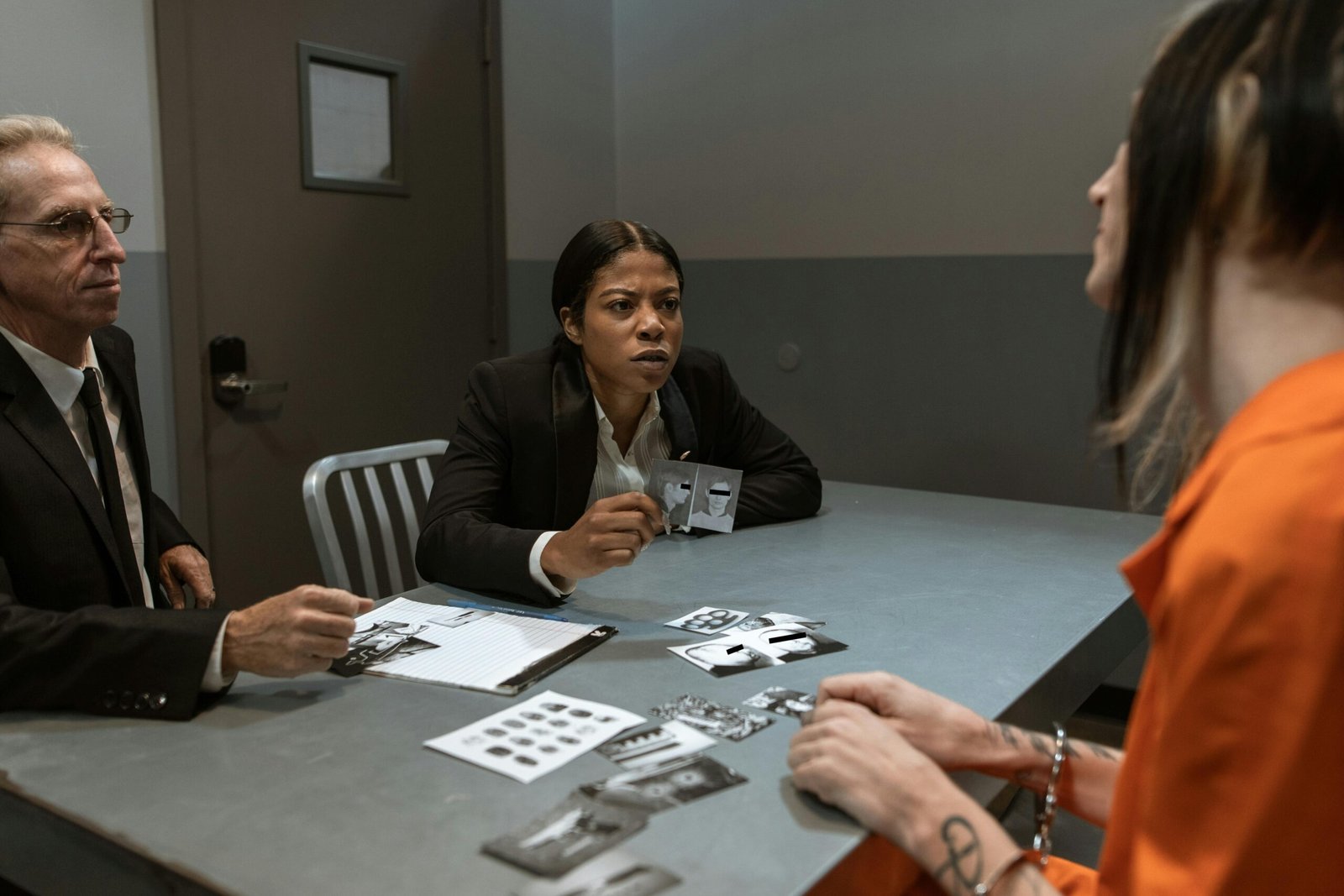
The criminal justice legal system is the framework through which governments maintain social control, prevent and mitigate crime, and sanction those who violate laws. This system varies widely across the globe, shaped by different historical, cultural, political, and social influences. Each country’s criminal justice system is a reflection of its unique values and norms, encompassing law enforcement, courts, and corrections. In this article, we explore some of the world’s major criminal justice systems and highlight notable case studies that illustrate their effectiveness, challenges, and evolution.
Various Criminal Justice Legal Systems
1. The Adversarial System: United States and United Kingdom
The adversarial system, prominent in countries like the United States, the United Kingdom, and other common law nations, places the prosecutor and defense in direct opposition, presenting their cases before an impartial judge or jury. The idea is that truth will emerge through a structured, fair competition of evidence and argumentation.
United States Criminal Justice System
In the U.S., the criminal justice system is composed of federal and state laws, operating within an adversarial framework. The accused is presumed innocent until proven guilty beyond a reasonable doubt. The system’s key components are law enforcement (police and investigative agencies), courts (judges, prosecutors, and defense lawyers), and corrections (prisons, probation, and parole).
Case Study: The Central Park Five (1989)
One of the most prominent examples of the U.S. criminal justice system’s failings is the case of the “Central Park Five.” In 1989, five young Black and Latino teenagers were wrongfully convicted of assaulting and raping a woman in Central Park. Their confessions were coerced, and the media frenzy around the case contributed to a rushed and biased legal process. After spending years in prison, their convictions were vacated in 2002 when DNA evidence and a confession from the real perpetrator proved their innocence.
This case highlights the dangers of racial profiling, media influence, and police misconduct within the U.S. system. It also spurred a public conversation about wrongful convictions and led to policy changes aimed at protecting the rights of suspects during interrogations.
United Kingdom Criminal Justice System
The UK system is based on the common law tradition, with judges interpreting laws passed by Parliament. The system operates under the principle of “innocent until proven guilty,” and trials are adversarial, with the prosecution and defense presenting their cases before a judge or jury. The police have wide-ranging powers of investigation, but the Crown Prosecution Service (CPS) ultimately decides whether to charge a suspect.
Case Study: Stephen Lawrence (1993)
The murder of Stephen Lawrence, an 18-year-old Black British man, in 1993 and the subsequent mishandling of the investigation by the police, exposed institutional racism within the UK criminal justice system. Lawrence’s killers were not convicted for nearly two decades, despite substantial evidence, due to police failures and racial biases.
In 1999, the Macpherson Report labeled the police response “institutionally racist,” prompting widespread reforms in how race-related cases are handled in the UK. This case illustrates how public pressure and legal reform can improve the justice system, though it also highlights ongoing challenges in achieving true equality before the law.
2. The Inquisitorial System: France and Germany
In contrast to the adversarial system, the inquisitorial system, common in countries like France and Germany, places the judge in a more active role, investigating the case, questioning witnesses, and determining the truth. The court is tasked with finding the facts rather than simply weighing the arguments of opposing parties.
France Criminal Justice System
In France, the judicial system is highly centralized, and the process is inquisitorial. The investigating judge (juge d’instruction) plays a critical role in gathering evidence and overseeing the investigation. Trials in criminal cases involve both professional judges and citizen jurors in serious matters.
Case Study: The Outreau Affair (2001-2005)
The Outreau Affair is one of France’s most infamous miscarriages of justice. In 2001, a series of child abuse accusations led to the wrongful conviction of 13 individuals. The investigating judge, Fabrice Burgaud, heavily relied on the testimony of children and other circumstantial evidence, overlooking inconsistencies and potential exonerating evidence. Over time, it became clear that the accusations were largely fabricated, and the majority of those convicted were acquitted in 2005.
This case led to public outrage over the powers of investigating judges and prompted reforms to reduce the risk of such judicial errors. It also emphasized the need for greater safeguards to protect the rights of the accused in the French criminal justice system.
Germany Criminal Justice System
Germany’s system, similar to France, operates within an inquisitorial framework. Judges take an active role in examining evidence and questioning witnesses, with less reliance on oral arguments from attorneys. The goal is to uncover the truth, rather than simply adjudicating between opposing arguments.
Case Study: The NSU Murders (2000-2011)
Between 2000 and 2011, the neo-Nazi National Socialist Underground (NSU) group murdered ten people, mostly immigrants, across Germany. The authorities initially misattributed the killings to organized crime within immigrant communities, overlooking the potential role of right-wing extremism.
The case exposed failures within Germany’s intelligence and police agencies to adequately investigate and recognize the signs of domestic terrorism. A lengthy trial of the NSU members eventually led to the conviction of Beate Zschäpe, a core member of the group. The case sparked significant reforms in Germany’s intelligence community and anti-terrorism policies, illustrating the dangers of racial bias and oversight in law enforcement.
3. Mixed Systems: Japan and South Korea
Some countries, like Japan and South Korea, blend elements of the inquisitorial and adversarial systems. In these countries, judges play a more active role in fact-finding, but there is still an opportunity for opposing parties to present arguments.
Japan Criminal Justice System
Japan’s system is known for its high conviction rate, which exceeds 99%. This is often attributed to the role of prosecutors, who only pursue cases they believe they can win. Pre-trial detention and confession-based evidence are also controversial aspects of Japan’s system, as there are concerns about coerced confessions during police interrogations.
Case Study: The Iwao Hakamada Case (1966)
Iwao Hakamada holds the world record for the longest time spent on death row. He was sentenced to death in 1968 for the murder of a family, based largely on his confession, which was later revealed to have been coerced. After spending over 45 years on death row, DNA evidence proved his innocence, and Hakamada was released in 2014.
This case highlights issues within Japan’s reliance on confessions in criminal trials and has sparked a broader discussion about the country’s use of the death penalty and the treatment of suspects during interrogations.
South Korea Criminal Justice System
South Korea’s criminal justice system has undergone significant reforms in recent years, particularly in the wake of political scandals and calls for greater transparency and accountability. The country operates a mixed system with elements of both inquisitorial and adversarial procedures.
Case Study: The Impeachment of President Park Geun-hye (2017)
In 2016, South Korean President Park Geun-hye was implicated in a corruption scandal involving her close confidante, Choi Soon-sil. The scandal led to mass protests across the country, culminating in her impeachment in 2017. Park was later convicted of bribery and abuse of power, receiving a 25-year prison sentence.
This case demonstrated the strength of South Korea’s legal system in holding even the highest political figures accountable for their actions. It also sparked a national conversation about the need for further judicial and political reforms to prevent corruption.
Conclusion for various Criminal Justice Legal Systems
The criminal justice systems across the world are diverse, and shaped by their respective histories, cultures, and legal traditions. While some countries emphasize adversarial processes, others prioritize inquisitorial procedures. Each system has its strengths and weaknesses, as seen in the notable case studies discussed. Whether it is the wrongful convictions in the U.S., the police misconduct in the UK, or the challenges in handling domestic terrorism in Germany, each case provides lessons for improving fairness, transparency, and accountability within criminal justice systems globally. As we move forward, the global legal community must continue to evolve, addressing these challenges and working towards a more just and equitable future for all.
Here are a few citations that you can refer to for news related to criminal justice systems and case studies:
- The New York Times – “The Central Park Five: The True Story Behind Netflix’s ‘When They See Us'”
- URL: nytimes.com
- This article explores the wrongful conviction of the Central Park Five, shedding light on racial injustice and police misconduct in the U.S. criminal justice system.
- The Guardian – “Stephen Lawrence Murder: How It Changed Britain”
- URL: theguardian.com
- This news article covers the lasting impact of Stephen Lawrence’s murder on the UK’s legal system, highlighting institutional racism and the resulting reforms.
- France24 – “The Outreau Affair: France’s Judicial Catastrophe”
- URL: france24.com
- A detailed look at the Outreau Affair, one of France’s most notorious judicial errors, and the reforms it prompted in the French criminal justice system.
- DW News – “NSU Trial: 10 Murders, No Remorse”
- URL: dw.com
- This report examines the NSU murders in Germany and the failures in law enforcement that allowed the killings to go unsolved for years, leading to intelligence reforms.
- The Japan Times – “Iwao Hakamada: Japan’s Longest-Serving Death Row Inmate Freed After 45 Years”
- URL: japantimes.co.jp
- A comprehensive piece on the wrongful conviction of Iwao Hakamada and the concerns about coerced confessions in Japan’s legal system.
- BBC News – “South Korean Court Upholds Park Geun-hye Impeachment”
- URL: bbc.com
- This article covers the impeachment of South Korean President Park Geun-hye, one of the country’s most significant legal and political events in recent history.






